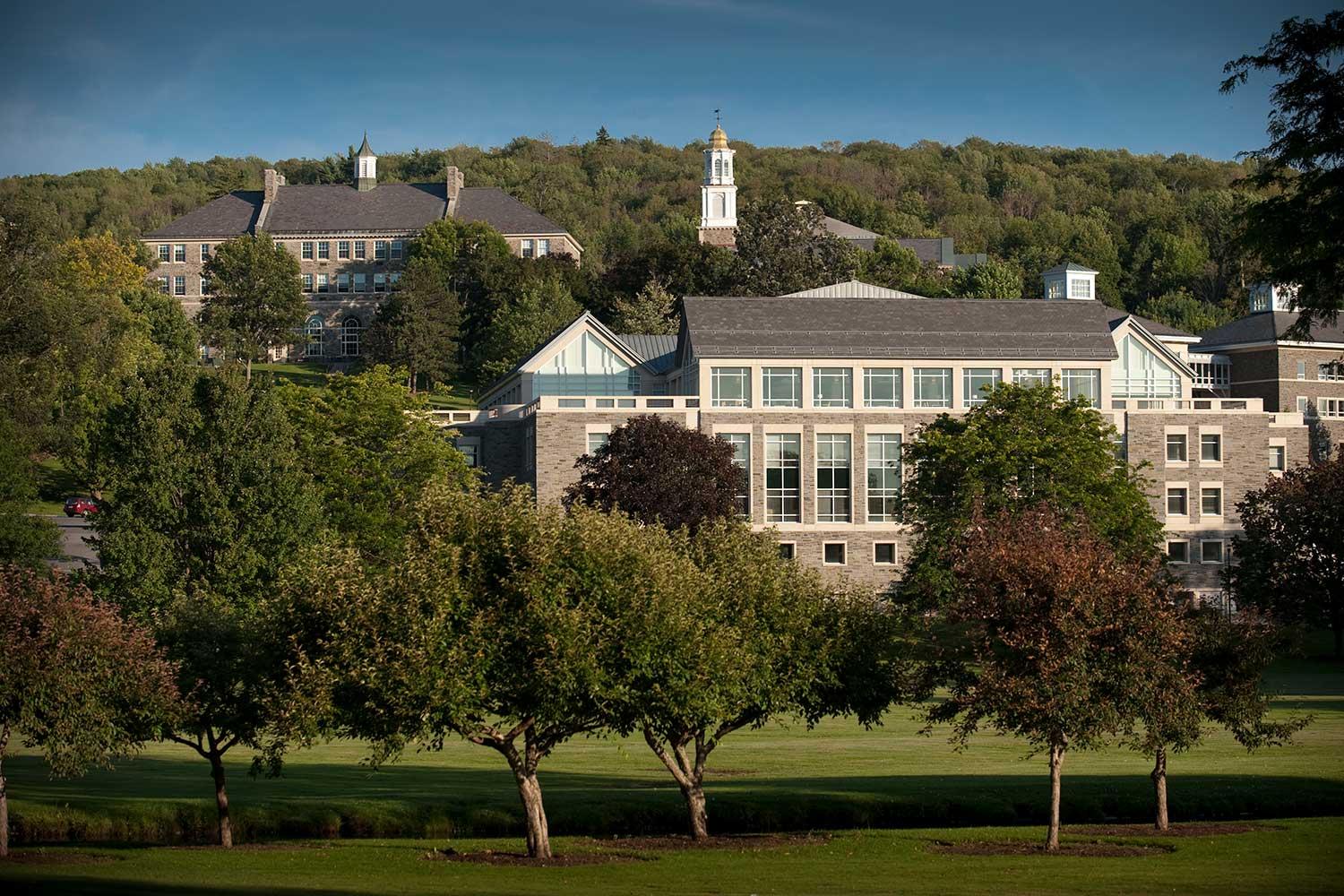Editor’s note: Wondering what’s happening in the classroom at Colgate? Here’s a real-time glimpse into academic life on campus — a syllabus from a course underway this semester.
ANTH 245 Nature, Culture and Politics
Elana Shever, Associate Professor of Anthropology
MW 1:20–2:35 P.M., 108 Alumni Hall
Course Description
The words “nature” and “the environment” conjure up visions of wild animals and untouched landscapes, but are people part of nature, too? This course examines people’s different relationships to the material world, and what shapes these different experiences and perceptions of animals, matter, and places. It takes a global, comparative, and historical view of human-environment relationships and considers the meanings and uses of natural resources in places from Andean mountains, to West African plains, to urban slums, to our own campus.
Our case studies will explore human relationships to fish and pigs; oil and diamonds; wilderness, parks, gardens, and landfills. In doing so, we will see how nature, culture, and politics are intertwined — in terms of how we affect our environment as well as how it affects us. The course is based in the anthropological tradition, but it draws significantly from sociology, geography, cultural studies, environmental history, and other fields that examine the natural world as an important site of cultural politics. After studying diverse human-environment interactions around the world, students will explore current environmental controversies.
Course Goals
1) Comprehend the diversity of social experiences of the natural world.
2) Think critically about what “nature” means in a variety of contexts.
3) Understand the importance of the cultural politics of nature in the contemporary world.
4) Hone academic skills for critically reading texts; analyzing written, oral, and visual evidence; and making and supporting crisp arguments.
Key Assignment
The course discusses many environmental/social problems that can leave us feeling overwhelmed, pessimistic, or cynical about the future and our ability to do anything about it. The final project aims to turn students’ knowledge and analytical skills toward thinking about ways to address, albeit not fully solve, a few of our current crises. Students work in groups to research, analyze, and propose ideas for addressing a problem at the intersection of nature, culture, and politics.
The Professor Says:
“This course really challenges students to question what they see as ‘the environment’ and what we mean when we say something is ‘natural.’ Just last week, we were discussing whether we should consider the Amazon as a natural place, considering that people have been shaping it for centuries, both through planting and harvesting within the rainforest and demolishing it for agro-business. Is the Amazon more natural than Central Park in New York City? It was a lively debate!”
